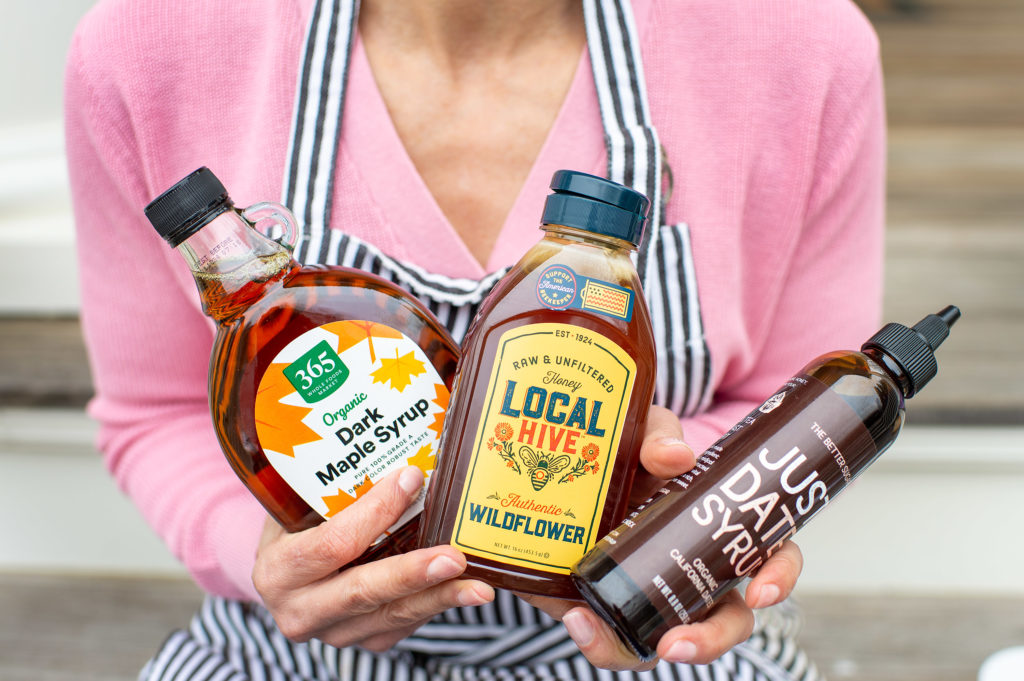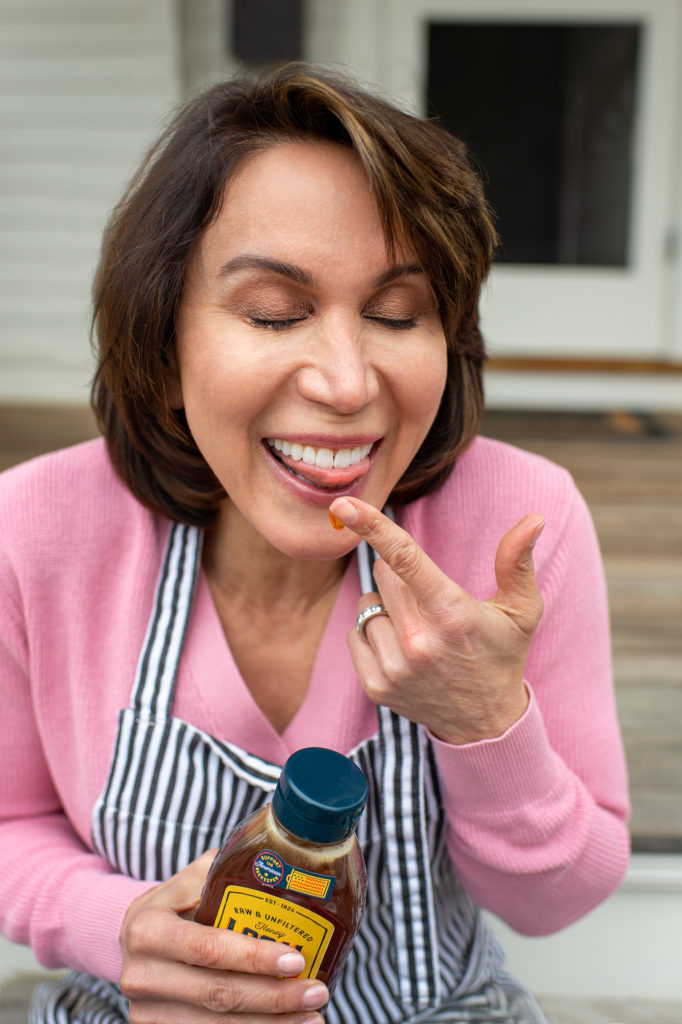
It’s summer, I’m vaccinated. I want to have fun and be out and about. I have a strong feeling that wine, possibly exotic cocktails, and some treats are in my summer socializing. However, I know that those might not be the best for my energy levels and waistline. I do have a sweet tooth, but sugar isn’t a part of my nutrition plan. I spoke with Amanda Lauren, the Health Coach of Amanda Lauren Wellness to talk about the ins and outs of sugar for a girl my age. She simplified the how, the why, and what to eat to feel like I’m having fun while still keeping it healthy!
Why is sugar so bad for me as I age?
Well, to be honest. Sugar is pretty bad at any age. When you eat this in any form (candy or cookies, pineapple, or even wine), the hormone insulin is released. Think of blood sugar, kind of like your temperature. You’re aiming for homeostasis, where conditions inside the body remain steady. When your blood sugar is too high, like when you eat a giant chocolate chip cookie or a hunk of French bread, insulin is released because your blood sugar is too high from the content of these foods. Sugar is stored in your muscles, your liver, and your fat cells. When insulin in the body is elevated, it gets stored in your fat cells. Here’s the ringer, you cannot burn that fat that’s been created by sugar storage as long as insulin remains high.
(surplus). It’s there to stay.
Chronically elevated insulin levels lead to insulin resistance. Your muscles, fat, and liver don’t respond well to the insulin and cannot take up glucose from your blood. As a result, your body has to make even more insulin for it to work. Too much insulin and insulin resistance leads to the risk of heart attack, high cholesterol, AND WEIGHT AROUND THE MIDDLE. After menopause, all women are prone to lower estrogen, and when estrogen is lower, it’s harder for insulin to manage and process your sugar intake. In other words, if you have low estrogen, you are prone to insulin resistance, metabolic disorders and weight gain.
So, if my insulin levels are high, should I just get rid of all carbs?
All carbs are sugar. Obviously, we all know that there are good carbs and bad carbs. Good carbs are foods like sweet potatoes, beets, oranges, blueberries, chickpeas, beans. Bad carbs are grains. Most people don’t understand that grains are sugar. Two slices of whole wheat bread equals two tablespoons of sugar. Oatmeal is a disaster!
Yes! when I eat oatmeal, I get bloated, and a little while after, I feel so sleepy. Why is it so bad for me?
Okay. Oatmeal is terrible for you. When you eat oatmeal, your blood sugar soars then comes crashing down again, leaving you hungry and craving more carbs. Whereas if you were to eat eggs, which has about the same amount of calories, your blood sugar and therefore your hunger hormones would stay steady. A great substitute for your morning oatmeal is quinoa or chia seeds with almond milk warmed in the microwave!

I love fruit. Fruit has sugar; should I cut out fruit altogether?
Fruit is okay to eat in a limited amount. Higher fiber fruits are best and fruits with high water content, like apples, strawberries, oranges. Really, it’s best to eat fruit along with foods that have fiber, fat, or protein. These foods slow the sugar absorption rate, so insulin levels don’t go so high. Have some berries with a few cubes of goat cheese. Eat slices of apple with some almond butter. Put the strawberries over some cottage cheese.
Definitely avoid dried fruit. It has too much fructose, which your body cannot use as energy. That goes for high fructose corn syrup as well. Fructose is converted directly into fat. Fruit in its whole form is absolutely fine to eat. The whole form of fruit contains fiber which blunts the insulin effect, so always choose whole fruit over dried fruit and avoid high fructose corn syrup at all costs.
So we all know that carbs are really a form of sugar? And so much of what I hear and think I know is—low carb dieting? What does that mean for my nutrition?
Think about eating to prevent disease. If you eat to ward off disease, you will be healthy and maintain a healthy weight. Look, don’t eat foods excessively—that means sugar and limit grains. There’s a protein in grains that bind to opiate receptors in the brain and can stimulate hunger. Eating sugar and grains can lead to eating up to 400 more calories per day than you usually would. I think it’s wise to be low carb, which means keeping your carb count to about 100 grams a day. If you’re Keto, that means 50 grams.
Okay, I love wine! I know wine is choc-full of sugar. Can I drink wine?
Wine not only has added sugar but a lot of other things like sulfur (a preservative), additives, and even stabilizers. It can have micro toxins from mold and even color additives. Remember, when you eat a meal with wine, your liver processes the wine (and everything in it) before anything else you eat with it.
I tell all of my clients to drink Dry Farm Wine. It’s entirely clean with no added sugars. It’s subscription, so it’s easy to enjoy wine.
There is hidden sugar everywhere in food. What should I look for on a label when I’m selecting my food?
Food and ingredients to avoid are wheat (a grain), and some of the more familiar terms for sugar are corn syrup, fructose, lactose, maltose, sucrose, brown rice syrup, brown sugar, barley malt, and many, many more. My advice, if in doubt, look it up.
Are there sugar substitutes that I can use for food and bake with?
My favorite is monk fruit and or stevia extract. Cut any recipe with maple syrup in half, and coconut sugar is undoubtedly better than sugar, but remember, it is still sugar.
High Fiber Fruits to Eat
- Apples
- Avocados
- Blackberries
- Coconut
- Oranges
- Pears
- Pomegranate
- Raspberries
Please let me know how you tackle your sugar cravings and don’t hesitate to contact Amanda Lauren @amandaluarenwellness


